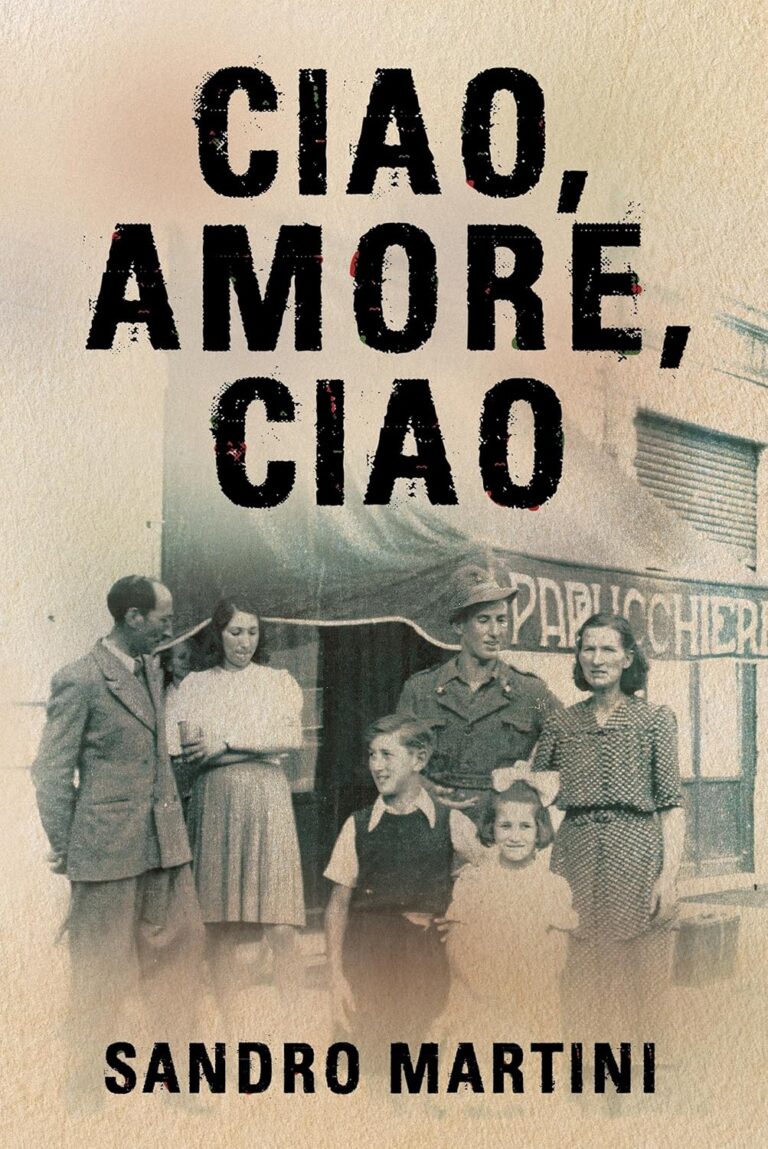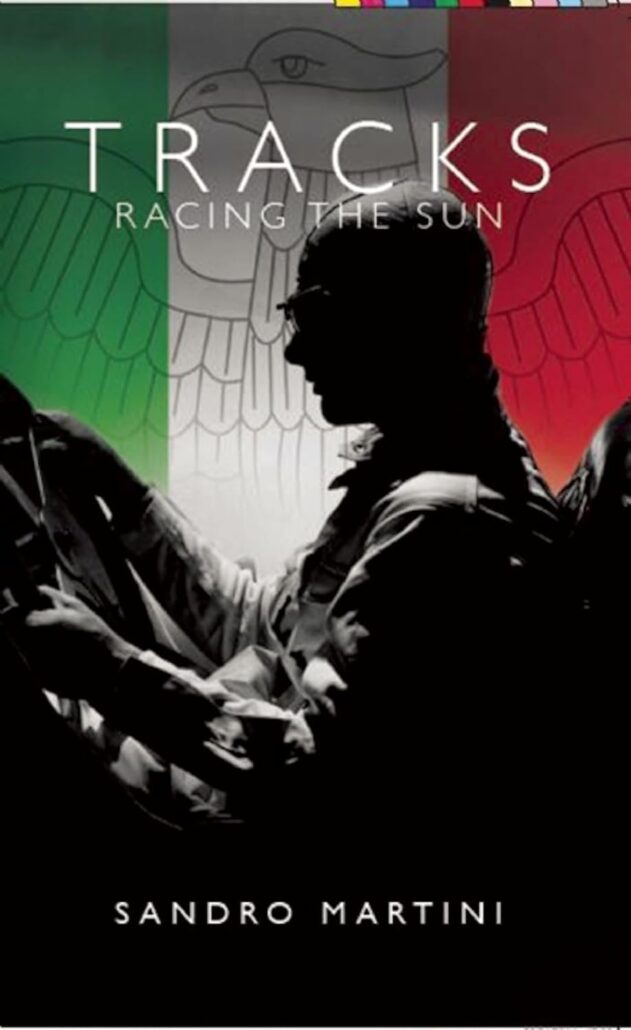 CIAO, AMORE, CIAO received a 4+ star review, making it an IndieReader Approved title.
CIAO, AMORE, CIAO received a 4+ star review, making it an IndieReader Approved title.
Following find an interview with author Sandro Martini.
What is the name of the book and when was it published?
CIAO, AMORE, CIAO, and it was published March 26, 2025
What’s the book’s first line?
Just gone dawn and waiting on a moulded red plastic chair with raindrops like a rash on the skin of dawn-splattered windows behind me when WhatsApp pings on my phone.
What’s the book about? Give us the “pitch”.
Dual-timeline novel about a middle-aged man who wants to discover his family’s buried history before he loses his dad—a history that involves a mass-killing in smalltown Italy in 1945, his uncle’s disappearance in Stalingrad (when Italy lost 100,000 men in 9 days), and a hidden crime that can take down a political dynasty. It’s based on a true story.
What inspired you to write the book? A particular person? An event?
Sounds depressing, but my dad’s passing and the family lore surrounding my uncle who vanished into the icefields of Russia in 1943. I’d been researching the novel for a decade, but I started writing Ciao about a week after I lost my dad. The first draft came in about 3 weeks. I think the expression is, in a fugue state. And in a mist of tears. I hardly recall writing this book at all, which maybe explains it’s surreal prose.
What’s the main reason someone should really read this book?
Italy, right after the war, was a fascinating place. The CIA basically bought the first post-war election in 1948 and used it as a model for the next 70 years. But to ensure the communists lost that election, some very dark decisions were made, decisions that continue to haunt Europe to this day. And all of this sprouts from those 9 days in December/January 1942/’43 when Italy lost 100,000 boys near Stalingrad. I don’t think English-speaking audiences are aware of the heroism and sheer brutality of what happened—or that it ended with the last human wave attack in history. You’ll find its echoes today, still, right down to the same towns where the war in Ukraine is currently being fought.
What’s the most distinctive thing about the main character? Who-real or fictional-would you say the character reminds you of?
The main character is a beat-down car writer who’s just trying to survive, one day to the next, and survival means not burying his emotions, not hiding from the pain. Staying human in the face of hurt.
When did you first decide to become an author?
When I was 7. My parents were war kids, immigrants. I didn’t even speak English when I started school. I got an Olivetti Lettera 32 for my 6th birthday and that was it. The smell of ink, the words that came with a clack, the worlds I could create, it was all sublime for a sickly boy in Africa who had no friends and little else other than his fantasy to rely on.
Is this the first book you’ve written?
This is my second novel. My first novel, Tracks, Racing the Sun, was also set in Italy, and tells the story of the golden age of motorsport—when Nazis and Fascists created the fastest cars in the world. Fun fact, the fastest man on a public road was a German named Caracciola, who kept that record from 1936 until 2012. The novel won an award and got a New York Times review, and a producer bought the movie rights. It was a fun ride!
What do you do for work when you’re not writing?
I work in the games industry.
How much time do you generally spend on your writing?
When I’m writing a book, I work from 3.30am to around 7.30am. That state of half-sleep is important, you’re less likely to be self-conscious (and sometimes you’re hardly conscious at all!) and that just lets the words flow.
What’s the best and the hardest part of being an indie?
Best? Having control over the book. The cover of Ciao, Amore, Ciao is a family portrait, taken on the day my uncle left for the war. (See the suitcase on the far right of the image?) This was the last time they ever saw him. He simply vanished—his body never came home, no dog tags, nothing at all. So being able to get that image on the cover is what makes “going indie” a great choice. As is the ability to remain true to what you want to say—and that was crucial for this novel. Hardest part? Learning to market the book on your own. It takes a lot of time. Ciao climbed to number 1 on Amazon in the UK and US. Satisfying? Yes. Hard work? You bet. Having publishers worry about that side of things is preferable to doing it myself, though these days, all writers are pretty much brand-building unless they’re Harlan Coben or whatever. But conversely, the novel got to number 1 because I remained true to the story, and traditional publishers, by and large, would never touch a novel like this. Authenticity matters these days. More than ever.
What’s a great piece of advice that you can share with fellow indie authors?
Learn to accept failure and rejection as part of the job. It’s literally part of the job, like editing, like writing, like researching. Just accept it, it’s not personal. Repeat Churchill’s mantra whenever you get despondent: “Success is the ability to go from failure to failure without losing your enthusiasm”. Oh, and cut anyone out of your life who doesn’t believe in you.
Would you go traditional if a publisher came calling? If so, why?
I was offered a contract for Ciao, but they wanted changes. I didn’t want to change this novel. This novel is about a family of no-ones. That matters to me. Because we’re in a moment when the “little grunts” need to stand and reclaim their worth in a world that no longer sees them and no longer cares whether they live or die. This book mattered to me more than a publishing deal.
Is there something in particular that motivates you (fame? fortune?)
Getting a bestseller for a week mattered more than I thought it would. So now I can write “bestselling, award-winning author” on my bio! (I think I’m joking, but ego-stroking …) Aside from that? Writing. The beauty of words coming together in a beautiful sentence. I love writing. Words. It’s what I get off on. Always have.
Which writer, living or dead, do you most admire?
Romain Gary and Celine for the same reasons. They were able to be honest. And wrote beautifully. That’s the hardest thing—the honesty bit—because you always want to self-censor or make people like you. They were unflinching in the way they saw themselves and the world. And brave to just throw it all out there. They were also deeply flawed people. Which is probably why they were so brave and honest to begin with!
Which book do you wish you could have written?
Journey to the End of the Night. And Promise at Dawn. That book has one of the most powerful lines I’ve ever read: “With maternal love, life makes a promise at dawn that it can never hold. You are forced to eat cold food until your days end. After that, each time a woman holds you in her arms and against her chest, these are merely condolences. You always come back to yell at your mother’s grave like an abandoned dog. Never again, never again, never again.” Honest, brave, and beautifully written, right?

